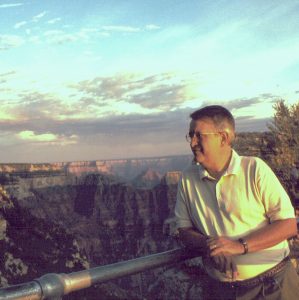Gathering: Holy One who is know to us by many names and in many ways, we give thanks for the blessings that we have in our lives. Be present now as we enter a time of thought and discussion.
Focus: Social Capital is the mutual trust and cooperation that arises from the web of connections among people involved in organizations and community groups. Robert Putnam’s successful book Bowling Alone: The Collapse and Revival of American Community (2001) put the issue of social capital into the context of popular culture. Putnam noticed that bowling leagues had declined significantly in the last few decades of the twentieth century. People still bowled, but as individuals and informal groups, not as part of a league. This change prompted Putnam to worry that the decline of membership in community groups was eroding America’s social capital.
In a democratic society, people must be willing to trust others and tolerate those with whom they disagree. Without these attitudes, democracy can fail, because democracy is ultimately a cooperative form of government. Many political scientists regard social capital as essential to democracy because social capital forges bonds between members of the community. These bonds enable people to readily join together. Also, working with others helps build a sense of community and trust among citizens, which, in turn, creates more social capital.
Tonight, we talk about social interaction and bowling alone.
Sentences on the Subject: (Feel free to react to a quote now or later)
“Consider how we may spur one another on toward love and good deeds, not giving up meeting together, as some are in the habit of doing, but encouraging one another.” St Paul Hebrews
“Slavery was, in fact, a social system designed to destroy social capital among slaves and between slaves and freemen.”― Robert D. Putnam
“TV-based politics is to political action as watching ER is to saving someone in distress.”― Robert D. Putnam
“Financial capital – the wherewithal for mass marketing – has steadily replaced social capital – that is, grassroots citizen networks – as the coin of the realm.”― Robert D. Putnam
We don’t see a lot of models for male social interaction. There’s sports and barn raising. –
Below is some “food for thought”, a few probes that might kick start a conversation. Read over them and pick one (or more, or none) to discuss. Remember to hold space for others to share and share only what you feel comfortable sharing.
Probe 1. “In my little town, I grew up believing (that) God keeps his eye on us all; and He used to lean upon me, as I pledged allegiance to the wall. Lord, I recall my little town”.(Paul Simon) What was the neighborhood like where you grew up?
Probe 2. “In general, we’re a social network. I prefer that because I think it is focused on the people part of it – as opposed to some people call it social media, which I think focuses more on the content”. – Mark Zuckelberg What’s your thinking on social media?
Probe 3. Roll out of bed, Mr. Coffee’s dead, the morning’s looking bright; Your shrink ran off to Europe, and didn’t even write. And your husband wants to be a girl…Sometimes you want to go where everybody knows your name, and they’re always glad you came. You want to go where people know, people are all the same. you want to go where everybody knows your name.(Cheers! Portnoy and Angelo) If social interaction is so important, why has modern society abandoned it?
Probe 4. One of the most difficult tasks for any democratizing country is the building of civil society. Authoritarian regimes discourage civil society because civil society can form the basis of resistance to the government. These governments instill fear and mistrust within their citizens, often turning groups and individuals against one another. – Robert D. Putman
If Putman is right and the social capital is the basis for democracy, how do we form a resistance to its total elimination?
Probe 5. We weren’t created to be independent, autonomous, or self-sufficient. We were made to live in a humble, worshipful, and loving dependency upon God and in a loving and humble interdependency with others. Our lives were designed to be community projects. – Paul Tripp Can a person be a Christian (Muslim, Jew, Hindu, Buddhist) by themselves or is community required?
Commission: Hold on to what is good. Love deeply. Honor others. Stay excited about life and your faith. Be joyful. Be patient. If you pray, have faith. Share with people who are in need. Welcome others into your homes. Be loving to those who hurt you. Be present; be in the moment. Be agreeable, even with those with whom you disagree. Be humble. Be a friend of people who aren’t considered important. Do the right thing. If possible, live in peace with everyone. And remember, no matter who you are, or where you are on life’s journey- you are welcome here.
